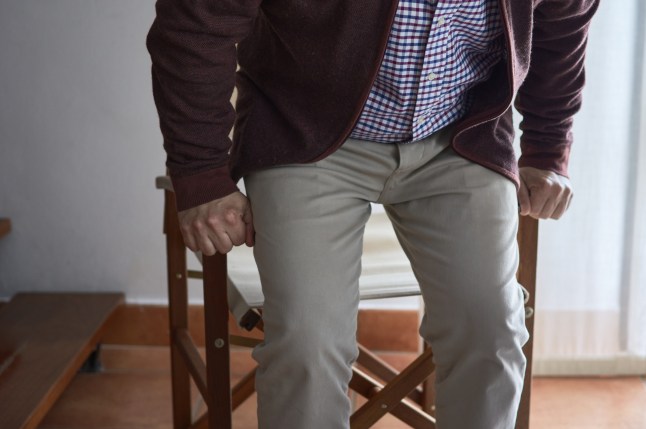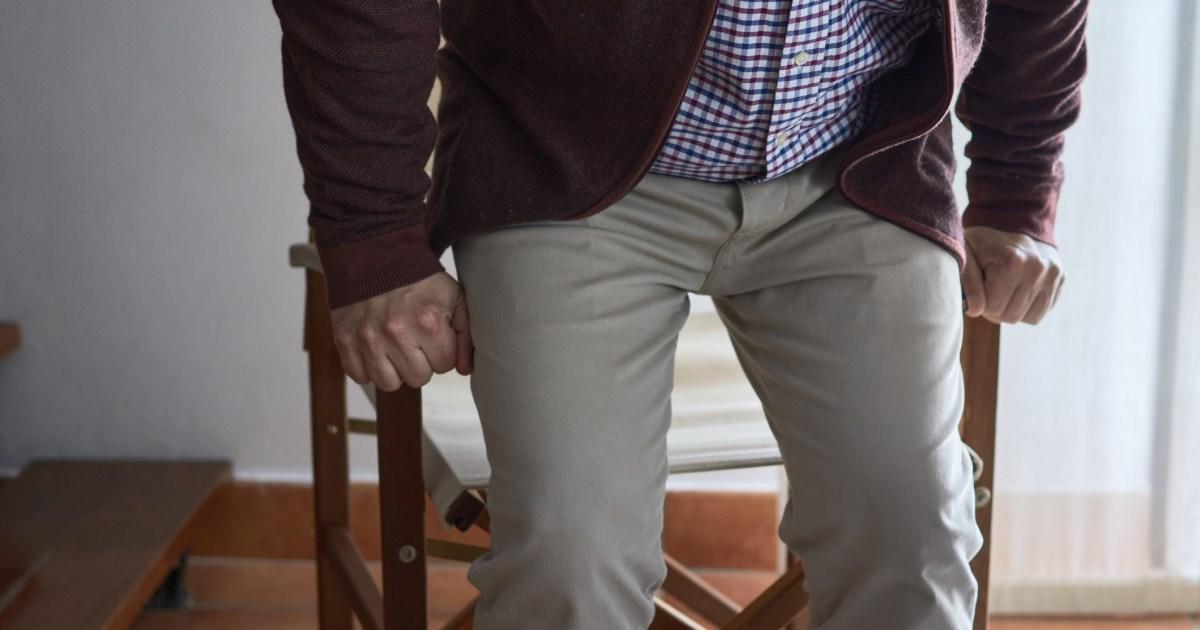
The 1MSTS test is used by health professionals but can be done at home too (Picture: Getty Images)
If you’re looking to get some insight into your fitness level, hold off before forking out for a high-tech smart device.
The one-minute sit-to-stand test (1MSTS) is a reliable way to assess your functional exercise capacity that’s simple to do and doesn’t cost a penny.
In fact, all you need is a chair and – as the name would suggest – a spare minute to give it a go.
Also as the name would suggest, the 1MSTS involves counting how many times you can sit down and stand up over the course of this time period.
Pulmonologist and respiratory medicine consultant Dr Ricardo José tells Metro it can be a ‘useful clinic tool’ when more complex testing isn’t an option, explaining that it ‘reflects the combined performance of the lungs, cardiovascular system, and skeletal muscles.’
In a clinical setting, he monitors a patient’s oxygen saturation, heart rate, and perceived breathlessness before and immediately after the test.
How to do the one-minute sit-to-stand test
- Place a chair (ideally one without armrests) with the back against a wall to ensure it doesn’t move around.
- Set a timer for one minute, making sure you can see it. Alternatively, have someone else time you.
- Sit in the chair with your feet flat on the floor and your knees at a 90° angle.
- Put your hands on your hips, cross your arms across your chest, or let them hang by your sides.
- Set a timer for one minute, making sure you can see it. Alternatively, have someone else time you.
- Fully stand up from the chair without using your hands or arms for assistance, then sit back down. This counts as one sit-to-stand.
- Continue sitting up and down on the chair as many times as you can until the minute timer is over, counting how many you’ve done as you go.
When to avoid or stop the 1MSTS test
According to the Primary Care Respiratory Society, you shouldn’t take the test if you:
- Have a health condition which contradindicates exervise of this nature
- Are feeling especially unwell, tired, fatigued, dizzy, light-headed, unsteady or nauseous
- Have an infection, or new or unusual joint or muscle pain
- Are under the influence of drugs or alcohol
You should also stop the test if at any time you feel unwell, have chest pain, dizziness or severe breathlessness.
Even if you don’t have the kit to check your vitals at home though, number of repetitions is still a good indicator of your baseline response to exercise — as well how it compares against averages for your age and gender.
Dr José explains: ‘Broadly speaking, healthy adults under 40 years old complete at least 40 stands in one minute.
‘Performance declines with age, with around 30 to 40 stands for middle-aged adults and 20 to 30 stands for those over 70.’

All you need is a chair and a spare minute (Picture: Getty Images)
However, if you want to see how your results match up in more detail, the median repetitions completed by each age group in a one-minute sit-to-stand test (according to a large-scale Swiss study published in the International Journal of Public Health) are:
- Age 20-24
- Age 25-29
- Age 30-34
- Age 35-39
- Age 40-44
- Age 45-49
- Age 50-54
- Age 55-59
- Age 60-64
- Age 65-69
- Age 70-74
- Age 75-79
Potential issues with the 1MSTS test
Keep in mind, these scores don’t account for a number of factors, including injury, pregnancy or respiratory issues like asthma, and there’s no ‘magic number’ that defines whether you’re healthy or unhealthy.
But if you struggle to reach your relevant average and there’s no known reason, it might mean you need to work on your lower body muscles and endurance, or indicate underlying problems encompassing everything from flexibility to cardiovascular health that require medical intervention.
As Jugdeep Dhesi, consultant geriatrician at Guy’s and St Thomas’ NHS Foundation Trust explained to BBC Future, it’s not a hard-and-fast benchmark but a ‘prompt’ that helps you ‘to do all the things that you can do to get better and stay better.’
She added: ‘I think it’s a really good way of empowering people to take control of their own health.’
Do you have a story to share?
Get in touch by emailing MetroLifestyleTeam@Metro.co.uk.
Arrow
MORE: Puma extends Hyrox partnership to 2030 as hybrid fitness races go global
Arrow
MORE: Social media ‘is wrong about your immune system’: Vitamin C myths debunked
Arrow
MORE: If you can do these 3 things in your 30s, you’re in remarkable shape
Comments
Add Metro as a Preferred Source on Google
Add as preferred source
The Slice
Your free newsletter guide to the best London has on offer, from drinks deals to restaurant reviews.
